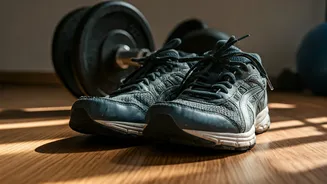Muscle Activation
Engaging in daily squats primarily targets major muscle groups. These include the quadriceps, which are located at the front of the thighs, and the hamstrings,
at the back of the thighs. Additionally, squats activate the gluteus maximus, which forms the buttocks, and the core muscles, which stabilize the spine and abdomen. The activation of these muscles improves strength and endurance over time. The repetitive nature of squats, even for a short duration like five minutes, consistently challenges these muscles. As a result, the body adapts by building muscle and enhancing the efficiency of the neuromuscular system. This process is crucial for everyday activities, making them easier and less strenuous. Furthermore, the increased muscle mass boosts metabolism, aiding in weight management and fat loss, offering significant advantages for overall physical fitness.
Enhanced Flexibility
Regular squatting contributes significantly to enhanced flexibility throughout the lower body. This exercise increases the range of motion in the hips, knees, and ankles. Consistent squatting helps to loosen tight muscles. The act of lowering and raising the body stretches the muscles and connective tissues, improving flexibility. Increased flexibility reduces the risk of injuries during physical activities. Improved mobility promotes better posture and balance. In daily life, this translates to easier movement, reduced stiffness, and improved comfort. The stretching involved in squats also helps to maintain the health of the joints. Flexibility is crucial for preventing muscle imbalances and promoting overall physical health. Incorporating this into your daily routine offers benefits that extend far beyond the exercise itself, enriching everyday life.
Improved Circulation
Squats can substantially improve blood circulation throughout the body. The movement of squatting encourages blood flow, which in turn benefits the cardiovascular system. As muscles contract and relax during squats, they act as pumps. This pumping action pushes blood through the veins and arteries. The enhanced circulation helps deliver oxygen and nutrients to the muscles and organs more efficiently. Efficient circulation contributes to better overall health. Improved blood flow reduces the risk of cardiovascular diseases. Squatting even for a brief period can assist in the removal of waste products from the body. Consequently, regular squats can improve energy levels, reduce fatigue, and contribute to a healthier cardiovascular system, improving overall wellness.
Better Posture
Performing squats regularly can result in noticeable improvements in posture. The exercise strengthens core muscles, which are key for maintaining an upright position. Squats help balance the muscles of the body, which reduces the imbalances that often lead to poor posture. Consistent squatting supports the spine by strengthening the muscles that support it. Improved posture reduces back pain and enhances the overall appearance of the body. Additionally, proper posture allows for more efficient breathing and organ function. Maintaining good posture boosts confidence and can contribute to better mood and self-esteem. As a result, squats, even performed for a short duration, have a profound effect on body mechanics and physical well-being. This can be incorporated into daily habits, providing both physical and psychological benefits.
Stress Reduction
The simple act of squatting can be a helpful way to alleviate stress and improve mental well-being. Physical activity, such as squats, stimulates the release of endorphins, which act as natural mood boosters. Regular exercise helps regulate the nervous system, reducing anxiety and promoting relaxation. Squatting can become a mindful practice. The focus required for correct form and breathing helps shift attention away from worries. Additionally, physical activity contributes to improved sleep quality, which has a direct positive impact on mental health. Engaging in a brief squat routine provides a break from daily stressors. It can offer a sense of accomplishment, boosting self-esteem. Consistent incorporation into your daily routine can make it a powerful tool for maintaining mental and emotional balance.













